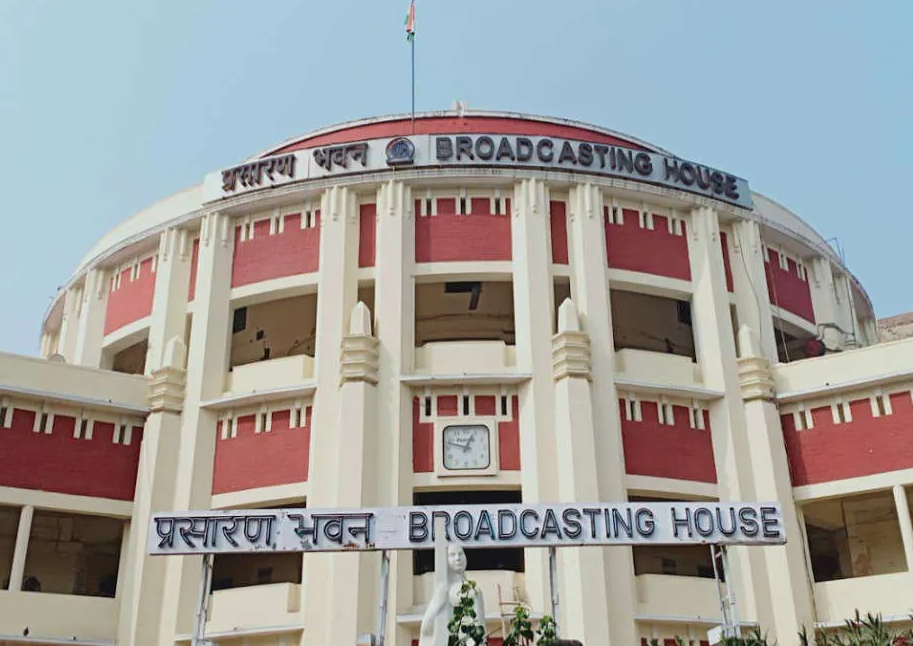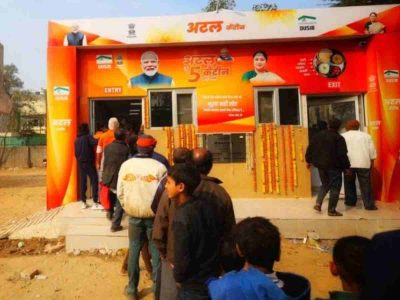The All India Radio (AIR) Urdu service, once the most broadcast service in the external services division – in terms of air time, is limping towards oblivion after many of its programmes were stopped and replaced by Hindi programmes which are sometimes broadcast a day late resulting in them becoming stale.
Programmes like Nayee Nasl, Nayee Roshni (related to youth), Bazm-e-Khawaateen (on women), Hifzaan Sehat (on health), Filmi Duniya (on films), Science Naama (on science), Khel Khilaadi (Sports), have all been replaced by Market Mantra, which has already been broadcast a day earlier through News Services Division in Hindi.
Hello Doctor (on health) and Gulhaae Rang, Rang (about state folk songs) have been replaced by Parikrama.
Other programmes like Aaina (literary magazine programme), Mushaira, Andaaz-e-Nazar (current affairs) have also been replaced by non-Urdu programmes.
The staff has not recorded a single new Urdu service programme since April, 2023, leaving the nine-and-a-half hour service without any programme, except for news, in the language for which it was established.
What is irking the staff is the delayed transmission of the Hindi programmes which makes them irrelevant.
Market Mantra, which gives news of share market and businesses is broadcast through the News Services Division in the evening but is repeated through Urdu service at 10.30 am the next day. It means that the Urdu service is relaying news about the closing market of a day earlier despite the new day of trading having already begun.
Parikrama, which informs listeners about the significance of events and festivals, is another programme that is broadcast a day late.
“There have been instances when we have had to transmit the news and significance of festivals a day after it was observed. For example, the National Unity Day is observed on October 31 and its significance was explained in Parikrama on the same day. However, the Parikrama programme was repeated through Urdu service on November 1. Same thing happened with events like Karva Chauth where the programme explained its significance to women. However, it was repeated through Urdu service a day after the festival was over,” said an official connected with AIR.
The change has been done without any official intimation or order from the ministry, it has been learnt.
“The reason for this is that every department is facing a crunch,” said a retired employee of AIR to Patriot.
The external services division once included transmission in over 20 foreign languages but the number has been reduced to 11 due to fund crunch. Service in languages like Russian and Sinhala have been shut down.
There is still broadcast service in Persian, Arabic, Dari, Baluchi, Swahili, Chinese, Tibetan, Pashto, Indonesian, French and Sindhi. However, the time for most of these is limited to one to two hours.
The Urdu service was a 24-hour service but was reduced by more than half post Covid. It now has transmission of three hours 45 minutes in the morning (9.30 am to 1.15 pm), two hours in the afternoon (3 pm to 5 pm) and three hours and 45 minutes in the evening (9.15 to 1 am).
The budget for the AIR Urdu service this financial year (2023-2024) was approximately ₹6 crore but not a single penny was spent. It is feared that the budget will get slashed after March next year after the authorities discover that no money was spent on programmes.
Patriot contacted DG AIR Vasudha Gupta, who responded by saying, “We are in restoration mode of what has been stopped in Covid.”
But in the case of Urdu service, it seems that instead of being restored to the pre-Covid 24-hour service, there is a possibility of it going completely off air since the production of new programmes was halted only in April, about two years after the last Covid lockdown ended and life became normal.





